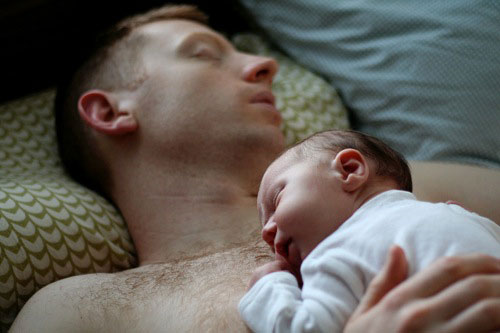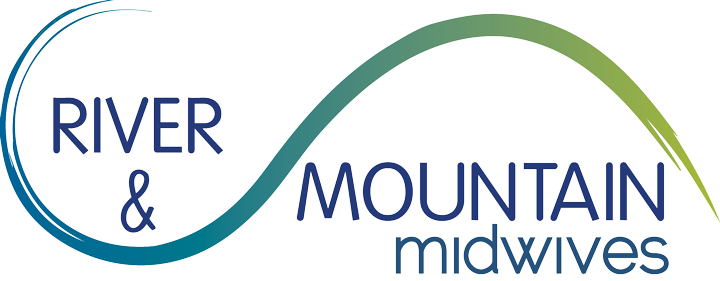
How often are prenatal appointments?
Routine prenatal visits are scheduled once monthly until the 32nd week of pregnancy and then every two weeks until the 36th week. From 36 weeks until you have your baby we see you weekly. Additional visits for other concerns are scheduled as needed.
How often do you see mothers and babies after the birth?
The postnatal home visits are very important in our practice. A midwife comes to your home on days 1,3 and 7 – or more if needed for lactation guidance or troubleshooting. You come back to the office two weeks after your birth for your “first big outing” – a check-up for mother and baby. You return for a final 4-6 week postpartum visit. Following “graduation” from our care, families begin to take their babies to their family practice or pediatric providers as needed. We offer the newborn screening blood tests and are happy to furnish all records of your baby’s early care to his or her healthcare provider.
Where are the visits held?
Most visits take place in our offices in New Paltz, Poughkeepsie or Pine Bush. We provide at least one home visit between 34-38 weeks so we can learn the way to your house and help you envision how your home will be your birth place. During the home visit we will see where you have your supplies and answer any logistical questions you may have.
How long are visits and what happens during visits?
Most visits are approximately 45 minutes long. During this time we discuss your concerns, your health and plans for your birth. Education is an integral part of the midwifery model of care. Physical prenatal assessments include urinalysis, monitoring blood pressure, hydration, nutrition and weight, assessing fetal growth, heart rate, size, position and well-being.
What about lab work and testing?
We discuss prenatal testing at visits. We teach and encourage families to learn as much as possible to make informed choices. Routine tests include screening for anemia, gestational diabetes, blood-typing and screening for infections which could affect your baby. We perform pap smears and cervical and vaginal cultures when indicated or requested. The midwives draw blood in our offices, so you don’t have to go to a lab. We do not perform ultrasound exams in our offices; however, when they are indicated or if you would like to have one, we will gladly give you a referral. We do not require “routine” ultrasounds, however there are reasons we may request that you have one.
What do you bring to births?
In addition to decades of education and experience, we bring many things. We have various ways of listening to a baby’s heartbeat so we’ll know the baby is responding normally to labor. We have a submersible electronic fetal doppler so we can monitor fetal heart patterns if you are in a pool or shower. We bring herbs, homeopathic and pharmaceutical medicines, which would only be used when clinically indicated. We bring sterile instruments for cutting the umbilical cord and for suturing when a mother needs stitches. We also bring local anesthesia for suturing. We carry oxygen, resuscitation equipment and suction devices and the midwives and their assistants are certified in neonatal resuscitation for out of hospital births.
What about a birthing tub?
We love pools for labor and birth. Water is a wonderful tool for labor, both for comfort and supporting good progress. There are many options for you. You may buy or rent your own tub. We have two inflatable tubs to rent: La Bassine and Pool in a Box. We also have two loaners, which are 150 gallon Rubbermaid feeding troughs. Each pool needs a liner you may buy from us for $35. You will need a new hose and an adapter for your hot-cold water source. We will give your clear instructions and you are responsible for setting up the tub for labor and birth. We recommend strongly having your tub and supplies ready by the 37th week of pregnancy. We bring a pump to births for draining your pool.
Will I need a doula?
Doulas (professional labor companions) can be wonderful resources prenatally and during the many hours of a long labor. They may provide comfort, physical support and reassurance. If you plan to have a doula at your homebirth, s/he must be comfortable with homebirth and midwifery care. The doula is a member of the team, not a go-between. Ideally, your doula will attend a prenatal visit with you so s/he can meet the midwives and address any questions or concerns about the doula’s role at a homebirth. For those who find the out of pocket cost of hiring a doula prohibitive, we may know of someone in training available at no charge. Ask us. Postpartum doulas offer tremendous support for families in the first weeks after birth, especially for single moms or families with partners returning to work soon after birth.
Can my older children attend the birth?
Most children handle birth very well, often surprising their parents! Children do best when they are prepared, have an adult they know and feel comfortable with present for them and have the option to leave. The designated grown up is in the home for the children and their needs and is not invested in being there when the baby comes out.
I have pets. Is this a concern?
Pets are great. Cats will labor sit with you. Dogs should be given great respect during the birth of the baby and the placenta. Having a place they like to be during this time is a good thing. You have to factor in the temperament of your particular dog. After your birth, the baby and dog should be introduced to each other. Letting the dog smell the first hat or blanket the baby wore will introduce the baby’s smell first. This can help ease the transition for sensitive dogs.
How long do you stay after the birth?
Normally we stay until all are well, fed, clean and ready to be alone as a family. Three hours is the norm. During that time, we clean up, perform a thorough newborn exam, facilitate the initiation of breastfeeding and discuss what to look out for and when to call us. We also leave written postpartum instructions.
How messy is it?
We clean up as we go and try to minimize and control any mess. You will have a bag of garbage to put outside in the can at the end of the birth and one load of laundry. We will put your placenta in a ziplock bag in your freezer or take it with us for encapsulation if prior arrangements have been made.
When do I take my baby to the doctor?
We like to see the mother and baby exclusively during at least the first two weeks. During this time if anything is notable we consult with your baby’s chosen healthcare provider. Some clients continue this care until the mother’s six week visit. The choice is yours.
What about vaccines?
We work with families who choose all, some or no vaccines after thoughtful research. We expect you to learn and make the choice that is right for your family and we support you in your informed choice. We do not administer vaccines.
Is there breastfeeding help if I need it?
Yes. Our postpartum care has been developed from over 30 years of practice. Working exclusively with our mothers and babies helps us to follow the individual needs of the nursing pair. Special needs modify care. There is no extra charge to you for lactation support during the six weeks postpartum.
Will my insurance company pay for my homebirth care?
Following your initial interview, we require a deposit for providing subsequent care because we cannot bill your insurance company until after your birth. In most cases, insurance companies reimburse for part of all of your care, depending on the type of policy you have. Once you give written consent for us to care for you and to contact your insurance provider, we will obtain the necessary prior authorization in writing. The date of service on your insurance claim will be the date of your baby’s birth. Most reimbursement occurs between two and six months after your birth. We work with a professional biller and follow up for up to one year from the date of service to recoup all or part of your deposit.
What if I need to go to the hospital?
When you have private care, signs of problems can be recognized and addressed before they become emergencies. If you or your baby needs medical care which cannot be provided in your home, we contact the appropriate facility, accompany you with your records and a midwife stays with you for continuity of care and advocacy. ADD: We have admitting privileges at the HealthAlliance Hospital in Kingston. It transfer to Kingston is reasonable under the circumstances, we continue to provide your care at the hospital. Otherwise, we go to the closest place near your community where you’ll receive respectful and appropriate care.
